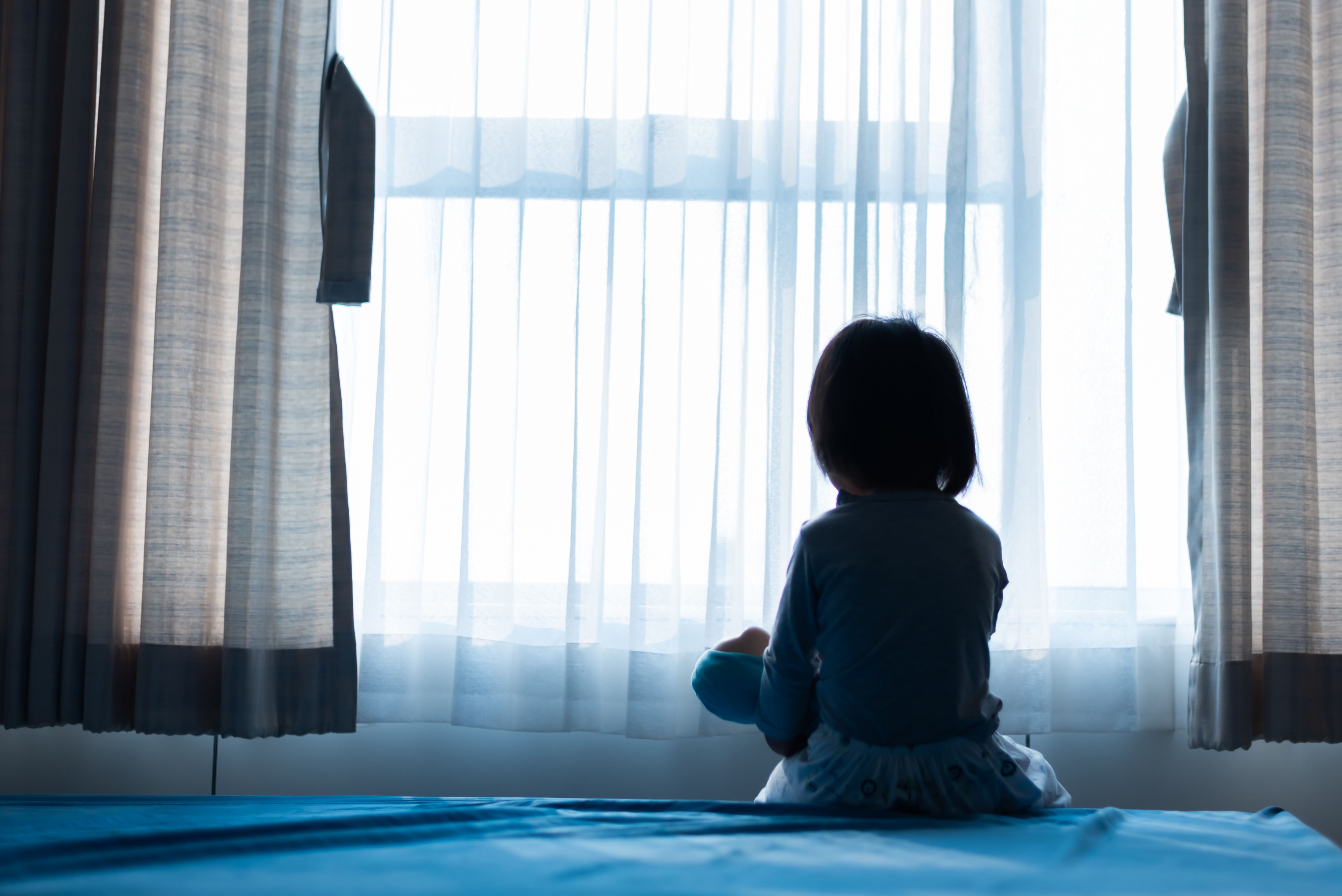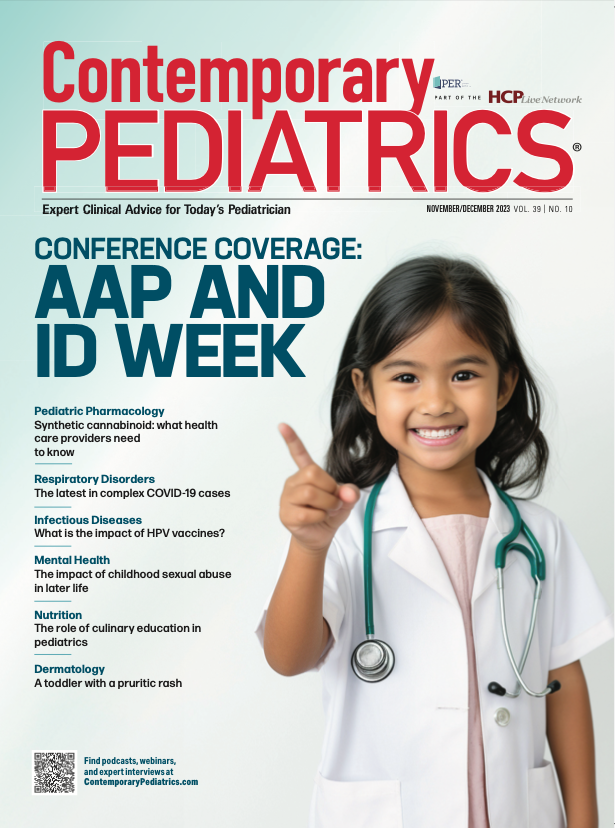How childhood sexual abuse affects adult survivors
Varsha M. Puri, DO, shares her latest research on how childhood sexual abuse and incest affect experiences and behaviors in adulthood, which was presented in a poster session at the 2023 American Academy of Pediatrics National Conference & Exhibition.
How childhood sexual abuse affects adult survivors | Image Credit: © yupachingping - stock.adobe.com.

In this Q&A with Contemporary Pediatrics®, Varsha M. Puri, DO, general pediatrician, Children's Hospital Los Angeles, University of Southern California, shares her latest research on how childhood sexual abuse and incest affect experiences and behaviors in adulthood, which was presented in a poster session at the 2023 American Academy of Pediatrics National Conference & Exhibition.
Contemporary Pediatrics®: Could you tell us about your study and its subsequent findings?
Varsha M. Puri, DO: [I presented] about a study on the adult outcomes and perspectives in childhood sexual abuse survivors and incest survivors. And so 1 of the main reasons to embark on this study is to get more information. This is a topic that has a lot of shame and secrecy. And so, a lot of what is commonly known may not actually be is there. So, a 24 question, anonymous, online survey was created and distributed over the course of 1 year. For perspective, we were hoping to maybe get into 50 surveys-we got 1310.
And so in terms of a cohort who can speak to what is happening, it was a significant number. The first thing we wanted to look at is the demographics of the population. We found that it was all walks of life. So, different economic statuses, different ages, different races, and different genders as well.
They had to be under 18 [years] when the event happened, but over 18 [years] to participate in the surveyWhat we found was that over half of the survivors reported that childhood sexual abuse that occurred before 6 years of age, 84% [endured] childhood sexual abuse [for] greater than 1 year, and [nearly] 40% [had been] abused for more than 10 years.
Almost 60% reported multiple abusers. When we look at the perpetrators, 1 of the main focuses was to understand who these perpetrators were to these survivors. Almost half reported that the perpetrators were under 21 years old-at least 1 perpetrator and that at least 1 perpetrator was female in 28% of the population.
And this specific point, when you look at previous studies, does not align and they're much smaller numbers. And they're in limited populations and institutions, so [individuals] walks into a psychiatrist or psychologist office. This is an online population of self-identified survivors. So, the other thing is to ask them a little bit about what their experience was like as the abuse was happening. We found that 54% informed an adult while the abuse was occurring, [and of that 54%] about 2% said something was done by my family to help. We find that it's pervasive and persistent.
So, 1 of the questions was how has it impacted your life. And when we came to the topics of sexuality, intimate relationships, and topics of mental health, over 95% said it negatively impacted them. Biological family was 88%. And the remaining topics which was education and academics, employment, finance, and physical health all exceeded 50%. So, we can see how it's pervasive and persistent.
Now, 1 other question was asking about addiction, and 85% reported addiction of these over 1000 respondents.So, when we look at these findings, one of the striking things is when you look at the limited research out there, and what we find clear is that there is a discrepancy.
There is a common stereotype that it may be a male, or it may be a stranger, or it may be an older person. And this is showing us that it reaches far outside of that, we are talking about females. And these are mostly in the household. They may be a biologically related or a familiar family member. And so, it can be fathers and uncles and brothers, it's also mothers and female familial roles.
This discrepancy is problematic, because in not understanding who and where the circumstances are happening, we aren't able to do outreach. And in pediatrics, 1 of our primary focuses is prevention. Because we know that when we help early, the trauma, as you echo out further, is less. And 1 of those discussion points becomes ACEs [(adverse childhood experiences) that everyone's become more familiar with.
And we're amongst an opioid epidemic, addiction epidemic. And there are things that are underneath this that need to be recognized. And this is one of those topics that doesn't get that much talk and science, because it has shame and secrecy attached to it.
So, at the end, when we are listening to survivors, we as pediatricians have to remember that we're talking to the child within each of them. And that listening to survivors is imperative to changing how things unfold as we go into the future. As pediatricians, we have a valuable voice as we hear in this conference.
One of them is to recognize that perpetrators can be everywhere, anywhere and how we address that is something we as pediatricians can discuss further. It can be the family member bringing them in, it could be a minor, we could be treating a perpetrator. These are facts. The second is to advocate for the removal of statute of limitations. Due to the nature of how abuse unfolds, you can see little is done while it is occurring.
People need time to discuss it. And in those discussions, we can see on a societal level that change is happening. But they have to be able to talk about it.
And then the third is to encourage our young people and our kids and our families and our parents to empower their children by talking about body parts by using the names. And talking about body boundaries on both sides, and talking about consent on both sides-giving consent receiving consent.
Reference:
Puri VM, Rao S. P3A154: Experiences and Perspectives of Adult Survivors. Poster. Presented at: Presented at: 2023 American Academy of Pediatrics National Conference & Exhibition.

Newsletter
Access practical, evidence-based guidance to support better care for our youngest patients. Join our email list for the latest clinical updates.